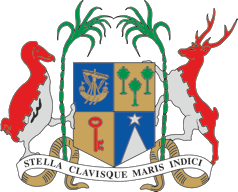Location
Although known to Arab and Malay sailors as early as the 10th century, Mauritius was first explored by the Portuguese in the 16th century and subsequently settled by the Dutch - who named it in honor of Prince Maurits van NASSAU - in the 17th century. The French assumed control in 1715, developing the island into an important naval base overseeing Indian Ocean trade, and establishing a plantation economy of sugar cane. The British captured the island in 1810, during the Napoleonic Wars. Mauritius remained a strategically important British naval base, and later an air station, playing an important role during World War II for anti-submarine and convoy operations, as well as the collection of signals intelligence. Independence from the UK was attained in 1968. A stable democracy with regular free elections and a positive human rights record, the country has attracted considerable foreign investment and has one of Africa's highest per capita incomes.
Mauritius is a parliamentary republic.
Source: CIA World Factbook
Members:
Resources
Displaying 1 - 5 of 67Local Government (Exemption from Building and Land Use Permit) (Amendment) Regulations 2017 (GN No. 127 of 2017).
These Regulations, made by the Minister under sections 117(2A) and 162 of the Local Government Act, amend the Local Government (Exemption from Building and Land Use Permit) Regulations 2015 in the Schedule to the principal regulations by deleting the words “(Individual)”, “(Self-employed)” and “(Individual/Homebased)” wherever they appear. The Schedule sets out "classified trade", which are generally exempted from applying for a Building and Land Use Permit.
Amends: Local Government (Exemption from Building and Land Use Permit) Regulations (GN No. 250 of 2015). (2015-12-21)
Sugar Industry Efficiency (Reduction Factor) Regulations 2017 (GN No. 34 of 2017).
These Regulations, made by the Minister under sections 28(4FA) and 34 of the Sugar Industry Efficiency Act (28A was introduced by the Sugar Industry Efficiency (Amendment) Act 2016), specify the circumstances in which a person is entitled to convert land free of land conversion tax and the conversion factor.
Implements: Sugar Industry Efficiency Act. (1990)
Cadastral Land Survey (Registration of Memorandum of Survey and Survey Report in Rodrigues) (Amendment) Regulations 2015 (GN No. 46 of 2015).
These Regulations amend the Cadastral Land Survey (Registration of Memorandum of Survey and Survey Report in Rodrigues) Regulations 2013 in regulation 3 with respect of ptrcedures for the registration and approval of a Memorandum of Survey and Survey Report. The Departmental Head shall endorse every memorandum or report of survey. Amends: Cadastral Land Survey (Registration of Memorandum of Survey and Survey Report in Rodrigues) Regulations 2013 (GN No. 121 of 2013). (2013-06-06)
Economic and Financial Measures (Miscellaneous Provisions) Act 2011 (Act No. 2011 of 2011).
This Act amends the Sugar Industry Efficiency Act 2001 and various other laws relating to land, fisheries and agriculture. The amendments concern economic and financial matters. The Fisheries and Marine Resources Act is amended by repealing section 8A and replacing it by a section concerning fish farming zones and fish farming industry. The Environment Protection Act is amended by inserting a new section on EIA licence under LPES (“Land Productivity Enhancement Scheme”).
Planning and Development Act 2004.
This Act provides for: (a) in relation to land development for – (i) the promotion and co-ordination of the orderly and economic use and development of land; (ii) the proper management, development and conservation of natural and man-made resources for the purposes of promoting the social and economic welfare of the community and a better environment; (iii) use of land for public purposes; and (iv) ecologically sustainable development; (b) for the appropriate sharing of responsibility for planning and development between the different levels of government.


